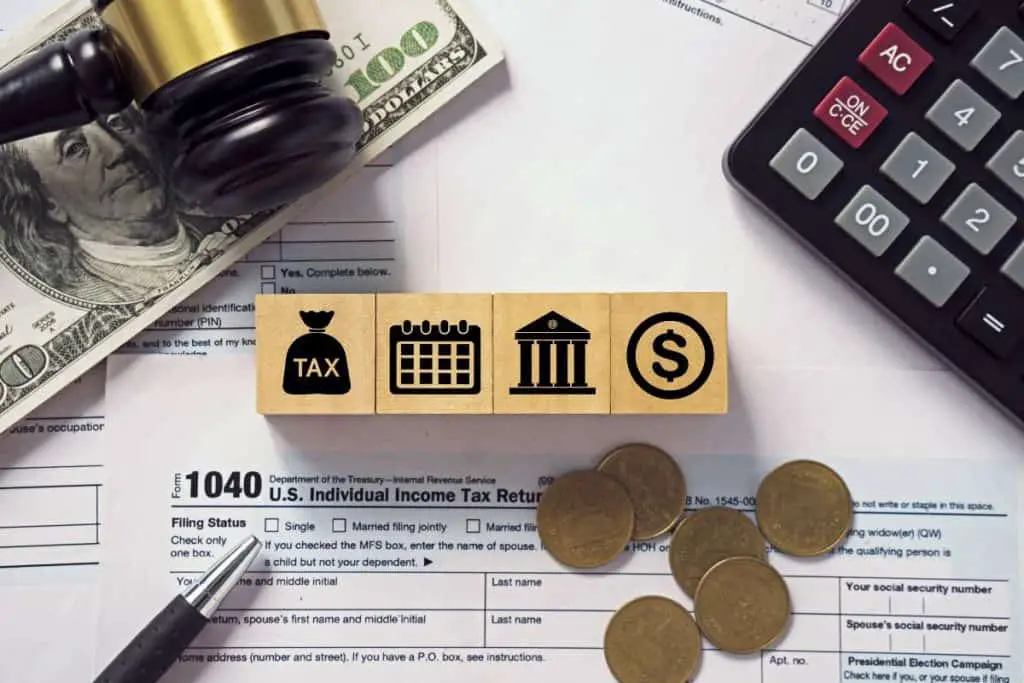What Foreigners Need to Know About Thai Tax Law for Expats
After spending over three decades in the U.S. tax system and now navigating Thailand’s tax landscape for years, I can tell you one thing: the upcoming 2025 changes are game-changers for expats. Let me walk you through everything you need to know about Thai tax law for expats and how to make it work for you.
Key Takeaways
- Thailand is implementing a new worldwide income taxation system in 2025, affecting all tax residents staying 180+ days
- Tax rates range from 0% to 35%, with various deductions and credits available for optimization
- Understanding residency status and income classification is crucial for proper tax planning, especially under the double tax agreement.
Understanding Tax Residency in Thailand
The first thing you need to know about Thailand’s tax system is how residency status affects your obligations. Having helped countless expats navigate this system, I’ve seen many misconceptions cleared up with just this basic understanding.
In Thailand, you’re considered a tax resident if you spend 180 days or more in the country during a calendar year. It’s not just about consecutive days – cumulative stays count too. This is crucial because 2025 brings significant changes to how residents are taxed.
Here’s what determines your residency status:
- To qualify for the physical presence test (180+ days), you must ensure your source of income aligns with taxation in Thailand.
- Visa status considerations
- Work permit implications
Thailand’s New Tax Structure (2025)
The biggest shake-up in Thai taxation is coming in 2025. As someone who’s witnessed multiple tax reforms across two continents, I can tell you this is significant. The new system brings Thailand in line with international standards, particularly regarding worldwide income taxation.
Progressive Tax Rates Table
| Income Range (THB) | Tax Rate | Notes |
|---|---|---|
| 0 – 150,000 | 0% | Tax exempt |
| 150,001 – 300,000 | 5% | First taxable bracket |
| 300,001 – 500,000 | 10% is the rate for those who are subject to tax under the double tax agreement. | Common for entry-level expats |
| 500,001 – 750,000 | 15% | Mid-range bracket |
| 750,001 – 1,000,000 | 20% | Professional level |
| 1,000,001 – 2,000,000 | 25% | Management level is important when considering how to reside in Thailand for tax purposes. |
| 2,000,001 – 5,000,000 | 30% | Executive level |
| Over 5,000,000 | 35% | Highest bracket |
What’s truly revolutionary about the 2025 changes is how foreign-sourced income will be handled. Previously, you only paid Thai tax on overseas income if you brought it into Thailand. Starting in 2025, all worldwide income will be taxable, regardless of where it stays.
International Tax Considerations
Having dealt with both U.S. and Thai tax systems, I can’t stress enough the importance of understanding double taxation agreements. Thailand maintains tax treaties with numerous countries, which can be your best friend in avoiding paying twice on the same income.
Key Treaty Benefits:
- Tax credits for taxes paid in treaty countries
- Reduced withholding rates on certain types of income
- Special provisions for retirees and pensioners
The new global minimum tax of 15% affects multinational companies with revenues exceeding US$870 million. While this might not directly impact individual expats, it shows Thailand’s commitment to international tax standards.
Filing Requirements and Deadlines
Mark your calendars! The Thai tax year runs from January to December, with returns due by March 31st of the following year. As someone who’s filed taxes in multiple countries, I can tell you Thailand’s system is relatively straightforward, but timing is everything.
Remember these critical dates:
- Regular filing deadline: March 31
- Extended filing (paper): April 30
- Mid-year filing (if applicable): September 30
Special Tax Categories
Let’s dive into some specific types of income that often confuse expats. After helping numerous clients navigate these waters, I’ve seen how proper understanding can lead to significant savings.
Capital Gains
Unlike many Western countries, Thailand treats capital gains as regular income. However, here’s a valuable tip: gains from selling securities on the Stock Exchange of Thailand are tax-exempt. This can be a game-changer for your investment strategy.
Real Estate Considerations
If you’re thinking about property investment, note that property sales are subject to specific rules:
- Transfer fees: 2% of registered value
- Withholding tax: 1% of the sale price or registered value (whichever is higher)
- Business tax: 3.3% (including local tax)
Inheritance and Gift Tax
Thailand’s approach to inheritance is relatively generous compared to many countries:
- Inheritance tax only applies to amounts exceeding THB 100 million
- Rate: 5% for direct descendants, and 10% for others, as outlined in the tax rules.
- Gift tax: flat 5% rate with family exemptions up to THB 20 million annually

Social Security and Other Obligations
The Thai social security system works differently from what most expats are used to. Here’s what you need to know:
- Your contribution: 5% of salary (capped at THB 750/month)
- Employer matches: 5%
- Government adds: 2.5%
For my American readers, note that there’s currently no totalization agreement between Thailand and the U.S. This means you might need to contribute to both systems – something to factor into your budget planning.
Compliance and Penalties
Let me be frank – Thailand takes tax compliance seriously. Having seen both sides of the coin, I can tell you that staying compliant is far easier than dealing with penalties.
Non-compliance consequences include:
- Monthly surcharge: 1.5% of unpaid tax
- Possible criminal charges for tax evasion
- Visa renewal complications
Tax Planning Strategies
Smart tax planning can significantly reduce your liability. Consider:
- Timing your income recognition
- Structuring investments efficiently
- Utilizing available deductions and credits
- Keeping meticulous records
Understanding Digital Income for Expats
Remote Work and Freelancing
The digital economy has transformed how expats earn in Thailand, and the tax implications are evolving alongside it. In my experience helping digital nomads understand their obligations, I’ve found that the classification of online income often causes confusion. When you’re earning from overseas clients while based in Thailand, you’re entering a unique tax situation that requires careful attention.
Under the new 2025 regulations, income from remote work or freelancing is treated as personal income, regardless of where your clients are based. This means if you’re spending more than 180 days in Thailand, your global digital earnings fall under Thai tax jurisdiction. I’ve seen many remote workers surprised by this, especially those who assumed that working for foreign companies exempted them from Thai taxation.
Cryptocurrency and Digital Assets
The cryptocurrency landscape in Thailand has become increasingly regulated, particularly when it comes to taxation. From my observations of the local fintech scene, Thailand’s Revenue Department has taken a clear stance: crypto gains are taxable income. This includes everything from trading profits to mining rewards, NFT sales, and how they are reported on your tax return.
What’s particularly interesting is how Thailand treats different types of digital assets. Trading profits are considered personal income and taxed at progressive rates, while mining operations might be classified as business income depending on their scale. I remember when this distinction first became clear – it was a game-changer for several expat crypto enthusiasts I know.
Property Investment Considerations
Rental Income and Property Tax
Property investment remains a popular choice among expats in Thailand, but the tax implications deserve careful consideration. When it comes to rental income, Thailand’s tax system actually offers several advantages if you know where to look. Based on my own property investment journey, I’ve found that the key to optimizing your tax position lies in understanding available deductions and the tax rules in Thailand.
Property owners can claim deductions for a wide range of expenses, from basic maintenance to insurance costs. What many don’t realize is that you can also deduct property management fees and mortgage interest on your tax return. These deductions can significantly reduce your taxable rental income, making property investment more attractive from a tax perspective.
Property Sales and Capital Gains
The taxation of property sales in Thailand operates differently from many Western countries. Rather than having a separate capital gains tax regime, profits from property sales are integrated into your personal income tax. What I find particularly interesting is how the length of ownership affects your tax liability. Properties held for longer periods often qualify for more favorable tax treatment.
Banking and Financial Planning
Understanding the intersection of Thai banking regulations and tax obligations is crucial for ex-pats. During my years here, I’ve learned that maintaining proper documentation for international transfers isn’t just about compliance – it’s about making your tax filing process smoother. Regular transfers from abroad need to be properly documented, not only for the bank but also for potential tax audits related to your expat tax obligations.
The Thai banking system offers various investment vehicles, each with its own tax implications and subject to tax regulations. Whether you’re looking at mutual funds, government bonds, or stock market investments, understanding the tax treatment of each can help you make more informed decisions. For instance, long-term equity funds (LTFs) offer tax benefits that many ex-pats overlook.
What I’ve found most valuable is developing a comprehensive financial strategy that takes into account both investment goals and tax efficiency. The key is to remember that what works in your home country might not be the most tax-efficient approach in Thailand due to different income tax rates.
FAQs
What is the new tax law in Thailand for expats?
Do foreigners have to pay tax in Thailand?
How to save tax in Thailand for expats?
Do retirees pay taxes in Thailand in 2024 for expats?
Do I need to report cryptocurrency gains?
Conclusion
From my years of living in Thailand and researching these topics extensively, I’ve learned that staying informed about tax obligations is crucial for a stress-free expat life. While this guide covers the key aspects of Thai taxation, remember that tax laws are complex and constantly evolving. I always recommend consulting with qualified tax professionals for your specific situation – it’s an investment that can save you both money and headaches in the long run.
Have questions about expat life in Thailand? I’d love to hear from you! Contact me, I’m always glad to help in any way I can.






